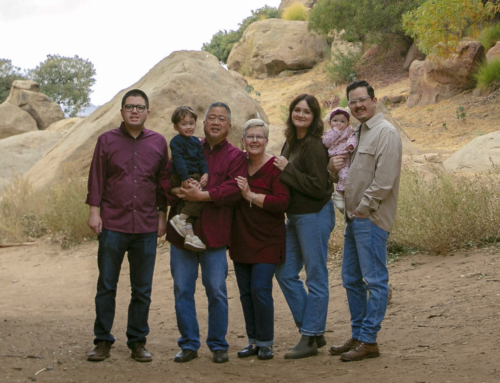Future Planning: How To Develop A Life Care Plan For A Child With Disabilities

Every parent does well to consider a future when they are unable to care for their children. For parents of children who may never grow into typical adult independence, questions regarding their adult child’s long-term care become critical, and as the parents age, even urgent.
In the best of circumstances, the process of estate planning and establishing guardianship can feel overwhelming and complicated. When a family’s situation necessitates the creation of a life care plan for an adult with disabilities, preparing for the future can seem impossible.
However, in serving the God of hope who holds the future just as surely as he holds the past and present, we can move forward with trust. We can be confident God is concerned about the long-term wellbeing of our loved ones.
As Corrie ten Boom said, “Never be afraid to trust an unknown future to a known God.”

While Joni and Friends cannot take the place of a legal advisor, we can provide the following suggestions.
1. An important first step is to consider the various kinds of support necessary for the adult child to flourish.
This can include government benefits, local support services, financial resources, caregiving, medical decision making, and ongoing guardianship. There may be other essential categories based in each family’s unique needs. With a comprehensive list of needed supports—both currently in place and those yet to be established—every specific item can be better assessed and addressed.
2. We always recommend parents work with an attorney who understands special needs trusts.
This kind of trust can also be called a supplemental needs trust or simply a supplemental trust. Establishing this kind of trust can allow an adult child with disabilities to benefit from the specifics of the trust without jeopardizing eligibility for public services. Most trusts are written as revocable or irrevocable and can work against an individual with a disability, because they are subject to laws addressing assets and use of finances.
If a family would like assistance in connecting with an attorney familiar with these specific considerations, contact Special Needs Alliance. Special Needs Alliance is a national, non-profit organization consisting of attorneys who are committed to helping individuals with disabilities. Each of their attorneys are very familiar with the concerns related to disability, and work regularly with guardianships/conservatorships, public benefits, planning for disabilities, and other matters. Special Needs Alliance also posts articles to help answer questions on a variety of topics. Other resources can be found on The Arc’s Center for Future Planning.
3. We recommend choosing a guardian who shares the life values of the parents and understands the basic details of the child’s disability.
As a family considers the long-term interests of the adult child, we recommend choosing a guardian who shares the life values of the parents and understands the basic details of the child’s disability. This could be a relative, a close friend, or a trusted member of the family’s church or community. The important thing is for this individual to understand the dynamics of the family and the long-term responsibility.
Many families, however, are unaware of anyone who can fill this role. If so, the state or the residential home where the adult child resides would become the legal guardian. In this case, the parents may request the law firm drafting the special needs trust become the trustee of the special needs trust. This can be written within the trust itself. While there will be a fee for this service, it is a guard against unintentional improper use of the assets that could jeopardize federal and state disability funding. It may also protect the adult child from anyone taking advantage of the assets.
Even if friends or a church community cannot step into the role of guardian, they can still play an active part in supporting a family during their process of preparing for the future.
First and foremost, these individuals can pray. As God is a God who cares for those without parents or who have no voice (Psalm 146:9, Isaiah 1:17, Jeremiah 7:6, Zechariah 7:10, and James 1:27), he will delight in guiding the process and providing for this family.
Secondly, individuals who wish to support the family can fill the important role of friend to the person with a disability. Often, individuals who live in a residential home become isolated, only interacting with service providers who are paid to be present.
With knowledgeable legal advice, prayer support, and caring brothers and sisters in Christ, you can rest confidently. God will make a way to meet each adult child’s needs when he or she outlives our ability to provide that care.

Parenting a Child with Down Syndrome into Adulthood
In celebration of Down Syndrome Awareness Month, Stephanie Hubach is sharing the joys and challenges of parenting a child with intellectual disabilities. Listen as she offers wisdom from her leadership experience in disability ministry as well as personal insight from raising two sons to adulthood, Freddy and Tim who has Down syndrome.





